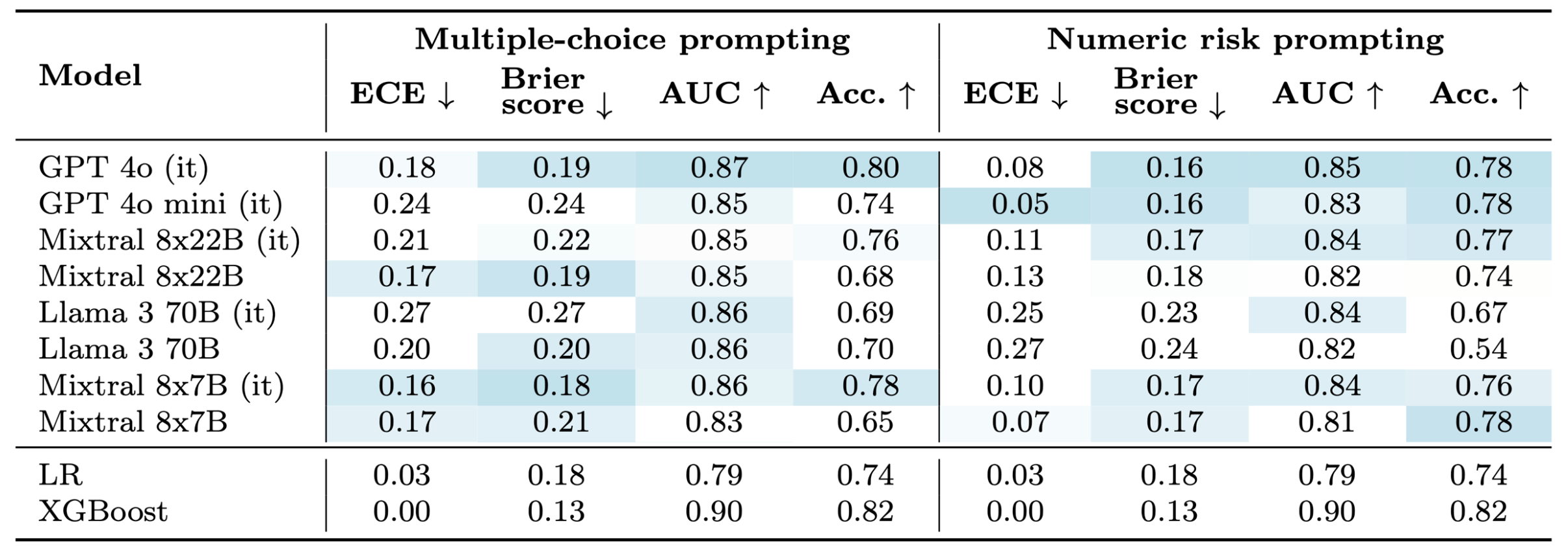Evaluating LLMs as risk scores

Current question-answering benchmarks predominantly focus on accuracy in realizable prediction tasks. Conditioned on a question and answer-key, does the most likely token match the ground truth? Such benchmarks necessarily fail to evaluate LLMs' ability to quantify ground-truth outcome uncertainty. In this project, we focus on the use of LLMs as risk scores for unrealizable prediction tasks. We use folktexts [], a toolbox to derive human outcome prediction tasks from survey data, and evaluate 17 recent LLMs across five benchmark tasks. We find that zero-shot risk scores produced by multiple-choice question-answering have high predictive signal but are widely miscalibrated. Base models consistently overestimate outcome uncertainty, while instruction-tuned models underestimate uncertainty and produce over-confident risk scores. In fact, instruction-tuning polarizes answer distribution regardless of true underlying data uncertainty. This reveals a general inability of instruction-tuned LLMs to express data uncertainty using multiple-choice answers. A separate experiment using verbalized chat-style risk queries yields substantially improved calibration across instruction-tuned models. These differences in ability to quantify data uncertainty cannot be revealed in realizable settings, and highlight a blind-spot in the current evaluation ecosystem that folktexts covers.
Members
Publications


